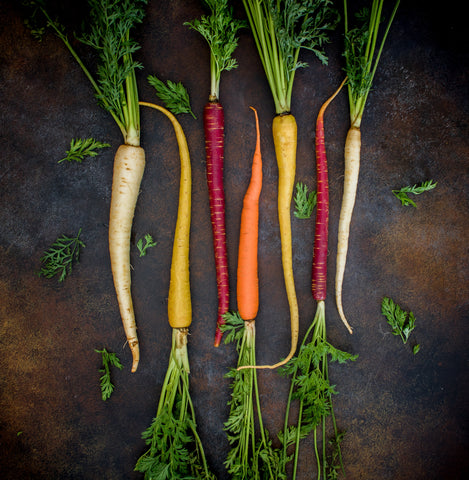
Jordan Freytag


There are thirteen essential vitamins that are necessary for a healthy body. Eating a balanced diet is often the easiest way to maintain the levels of essential vitamins in your body, but for vegetarians, those with food allergies, and those with dietary illnesses, maintaining these levels can be hard. There are many fruits and vegetables that can help to fill in the gap in your nutritional plan. And these edible plants are often far more sustainable than multivitamins and mineral medications.
Balance Health Foods Needs With Your Current Diet
The easiest source of sustainable vitamins is healthy and well-grown fruits and vegetables. There are many vitamins and minerals the human body is simply better at absorbing from sources such as meat, vegetables, and traditional sources of nutrition tied to an everyday diet.
Evolution suggests human stomachs have developed to absorb vitamins and minerals from sources of nutrition our ancestors ate for thousands of years, after all. But the increase in healthy foods such as kale and legumes, while inflated in the media, has made new sources of these essential vitamins available to those with dietary restrictions.
Look For Foods That Require Little Energy To Grow
And when we consider sustainability, livestock farming is actually very inefficient. Many minerals such as iron are more efficiently absorbed through meat, but dark leafy greens and nuts are both more sustainable substitutes. For a more in-depth look at foods that are very energy efficient when it comes to both their growth and the energy produced when they're consumed, we suggest looking at the Dietary Approaches to Stop Hypertension (DASH) program.
Use Vitamins To Fill In The Gaps, Not To Replace Foods
Multivitamins are a sustainable way to fill in the gap as well. MVMs are an unregulated market so that they can contain combinations of essential vitamins in different quantities. But if you find a reputable source of multivitamins, because they are a distilled form of essential vitamins, they can help to fill vitamin or mineral deficiencies left by modern diets. This is one case where synthetic multivitamin tablets are actually more sustainable than natural alternatives.
A sustainable intake of essential vitamins can be a difficult thing to balance, especially if you suffer from dietary restrictions or allergies. Multivitamins and synthetic tablets are both sustainable and an acceptable replacement for vitamins that may be lost in your daily diet. The traditional sources, such as superfoods and traditional, well-balanced meals can also fulfill your need for essential vitamins, as long as you consider adding sustainable, vitamin-rich substitute ingredients.
Written by Lucy Wyndham
Our Recommended Picks
Leave a comment
Your email address will not be published. Required fields are marked *
0 Comments
No Comments yet! Be the first to start a conversation
Further Reading

How to Choose the Right Tobacco Seed Variety for Your Garden
Selecting the right tobacco seed variety can make or break your growing season. For experienced gardeners, this choice isn’t just about aesthetics—it’s about matching your growing environment and goals with the perfect plant genetics. Whether you’re gr...

Ashleigh Smith
2025-10-294 min read0
Everything You Need to Know About Tobacco Seeds
Growing tobacco seeds is an art form for seasoned home gardeners. Whether you’re intrigued by the plant’s ornamental qualities, want to harvest for fresh processing, are curious about heirloom varieties, or simply love the challenge of nurturing delica...

Ashleigh Smith
2025-10-297 min read0
Mild Climate Winter Gardening Guide for Zones 9 & 10: What to Plant and When
Coming soon!

Ashleigh Smith
2025-10-171 min read0
Harvesting the Incredible Health Benefits of Microgreens
Written By Lara Wadsworth Microgreens are young edible seedlings that are harvested when they are just 1-3 inches tall. These quick-growing plants are emerging as an important food source with numerous health benefits. Their nutrient density can be up ...

Ashleigh Smith
2025-09-306 min read1



